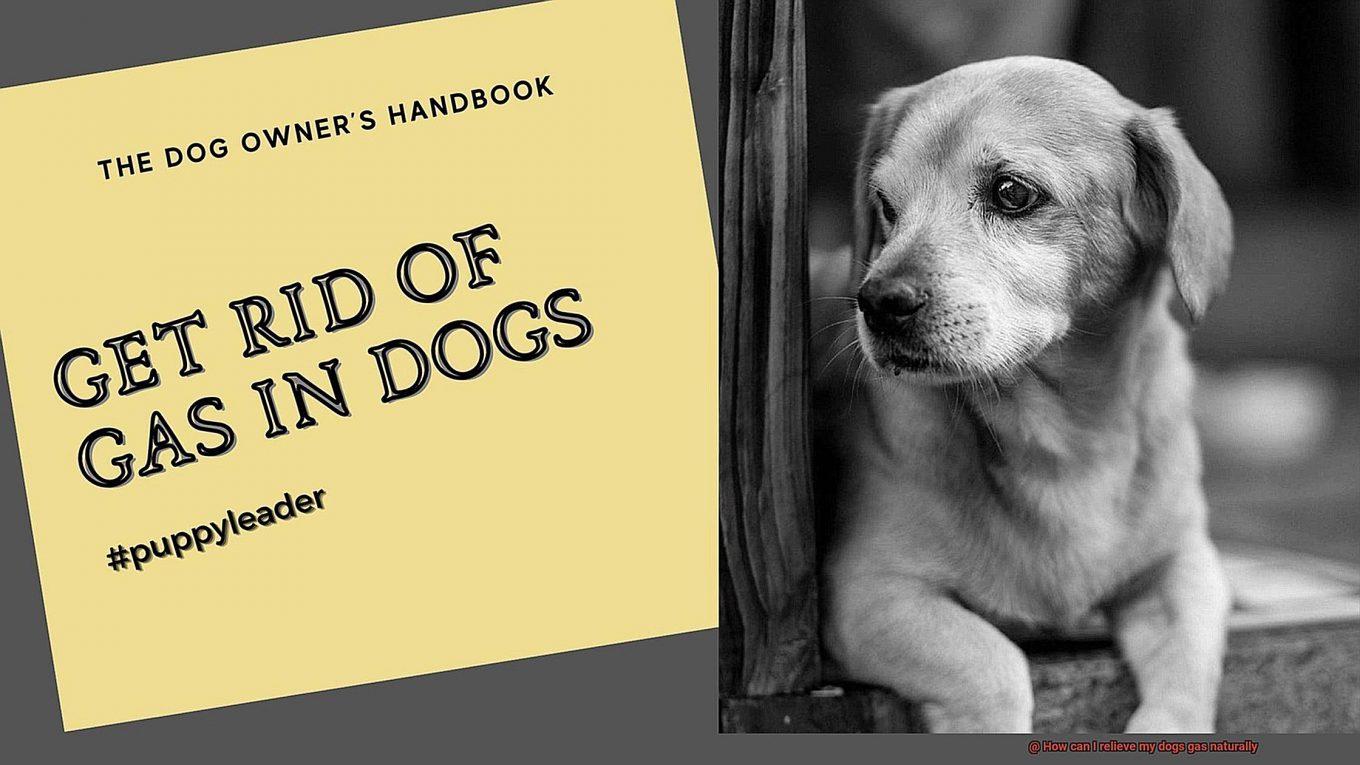How can I relieve my dogs gas naturally?
We all adore our furry companions, but let’s be honest – dealing with doggy gas can be a real stinkfest. We’ve all been there, cringing as our four-legged buddies unleash their not-so-fragrant odors upon the room. But fear not. Today, we’re here to chat about natural ways to ease your dog’s gas troubles, so you can both enjoy fresher air and happier tummies.
Sure, the occasional toot is normal for dogs, but excessive gas could signal deeper digestive issues or dietary woes. Instead of relying on chemical-laden quick fixes or dousing the room in air fresheners, we’ll explore gentle remedies that promote better digestion and bring relief without any funky side effects. So buckle up and get ready for some tried-and-true tips that will have your pup passing gas less frequently – naturally and safely.
Adjusting Your Dog’s Diet to Reduce Gas Production
Contents
- 1 Adjusting Your Dog’s Diet to Reduce Gas Production
- 2 Incorporating Probiotics into Your Dog’s Diet for Improved Digestion
- 3 Boosting Exercise Levels for Better Digestion
- 4 Natural Remedies to Alleviate Gas in Dogs
- 5 Promoting Healthy Eating Habits to Prevent Gas Buildup
- 6 The Benefits of Adding Fiber-Rich Foods to Your Dog’s Diet
- 7 The Role of Probiotic Supplements in Relieving Dog Gas
- 8 Herbal Extracts That Can Help Ease Gas in Dogs
- 9 Conclusion
Gas production in dogs is a common issue that can be uncomfortable for both your furry friend and your household. Luckily, there are simple dietary adjustments you can make to reduce gas and promote better digestion in your French Bulldog. In this comprehensive guide, we will explore effective strategies, natural remedies, and helpful tips to keep your French Bulldog’s gas under control.
Identify Potential Food Allergies or Sensitivities:
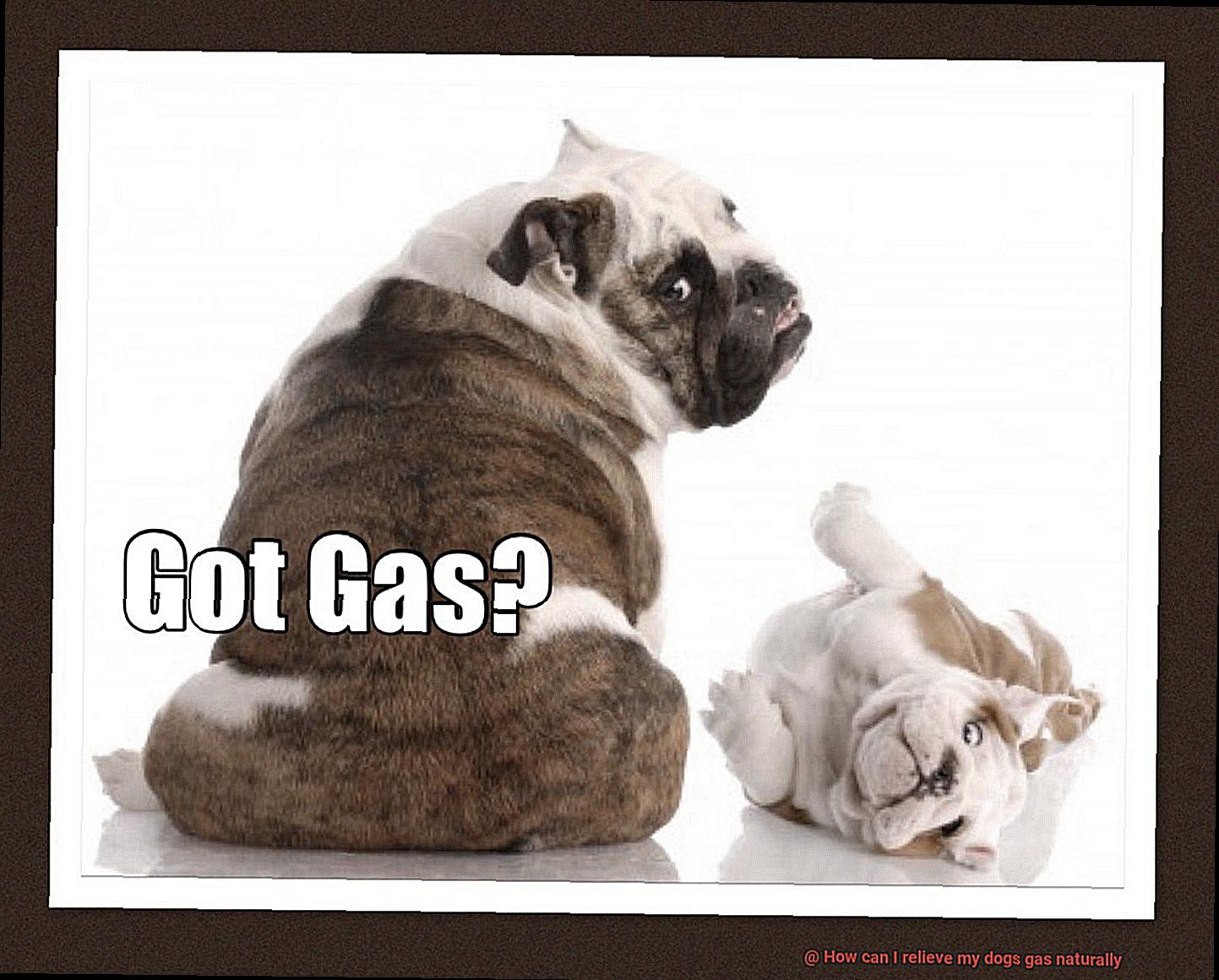
Start by investigating potential food allergies or sensitivities that could be contributing to your French Bulldog’s gas problem. Common culprits include grains, dairy products, and certain proteins like beef or chicken. Consult with your veterinarian to determine if an elimination diet or allergy testing is necessary.
Switch to High-Quality, Easily Digestible Dog Food:
Consider transitioning your French Bulldog to a high-quality dog food specifically formulated for sensitive stomachs. Look for brands that are free from artificial additives, fillers, and preservatives. These foods are designed to be easily digestible and can help reduce gas production.
Gradually Introduce Dietary Fiber:
Introducing dietary fiber into your French Bulldog’s meals can help regulate digestion and reduce gas. Start by incorporating small amounts of fiber-rich foods like pumpkin, sweet potatoes, or green leafy vegetables into their diet. Monitor their response and gradually increase the fiber content over time.
Mindful Feeding Practices:
Be mindful of how you feed your French Bulldog to minimize gas production. Avoid feeding them too quickly or overfeeding them, as this can lead to excessive gas. Consider using puzzle toys or slow-feed bowls to encourage slower eating and prevent the ingestion of excess air.
Harness the Power of Probiotics:
Probiotics can play a significant role in reducing gas in dogs. These beneficial bacteria promote a healthy gut flora and aid in digestion. Consult with your veterinarian to find the right probiotic supplement for your French Bulldog’s needs.
Track and Avoid Gas-Inducing Foods:
Keep track of what your French Bulldog eats and monitor their response. Certain foods may trigger more gas than others, so it’s important to identify and avoid these foods in the future. Maintaining a food diary can be helpful in pinpointing specific triggers.
Ensure Proper Hydration:
Make sure your French Bulldog has access to fresh water at all times. Proper hydration is essential for maintaining a healthy digestive system and can help reduce gas.
Incorporating Probiotics into Your Dog’s Diet for Improved Digestion
French Bulldogs are beloved companions known for their charming personalities and unique physical features. However, like many dog breeds, they can suffer from digestive issues that can cause discomfort and excessive gas. Fortunately, incorporating probiotics into their diet can be a game-changer in improving digestion and alleviating gas naturally. In this article, we will explore the benefits of probiotics for French Bulldogs and provide practical tips on incorporating them into their diet.
Understanding the Power of Probiotics:

Probiotics are live bacteria and yeasts that promote a healthy balance of gut flora. When incorporated into your French Bulldog’s diet, they can enhance digestion and overall well-being. Here’s how probiotics work:
- Restoring Gut Health: Probiotics help replenish the beneficial bacteria in your dog’s gut, which can be disrupted by stress, antibiotics, or poor diet choices. By restoring the balance, probiotics improve digestion and nutrient absorption.
- Enhancing Digestive Function: The beneficial bacteria in probiotics aid in breaking down food, ensuring efficient digestion, and reducing the risk of bloating and gastrointestinal discomfort.

Choosing the Right Probiotic:
When selecting a probiotic supplement for your French Bulldog, consider the following factors:
- Quality: Opt for high-quality products specifically formulated for pets, as they contain strains of bacteria suitable for dogs’ unique digestive systems.
- Variety of Strains: Look for a probiotic supplement that includes a wide range of beneficial bacterial strains such as Lactobacillus and Bifidobacterium species. Each strain offers distinct benefits, contributing to a healthier gut.
- Consult with Your Veterinarian: Seek guidance from your veterinarian to determine the most suitable form (powder, capsule) and dosage for your French Bulldog.
Incorporating Probiotics into Your French Bulldog’s Diet:
Follow these tips to successfully introduce probiotics to your French Bulldog’s diet:
- Gradual Introduction: Start by introducing a small amount of probiotics and gradually increase the dosage over time. This allows your dog’s system to adjust to the new bacteria.
- Mixing Options: Probiotics can be added to your dog’s regular food or given as a separate supplement. If your French Bulldog is picky, consider mixing the powder or capsule with a small amount of water or a tasty treat.
- Consistency is Key: Probiotics may not provide instant relief from gas. It takes time for the beneficial bacteria to establish themselves in the gut and improve digestion. Stay consistent and patient for optimal results.
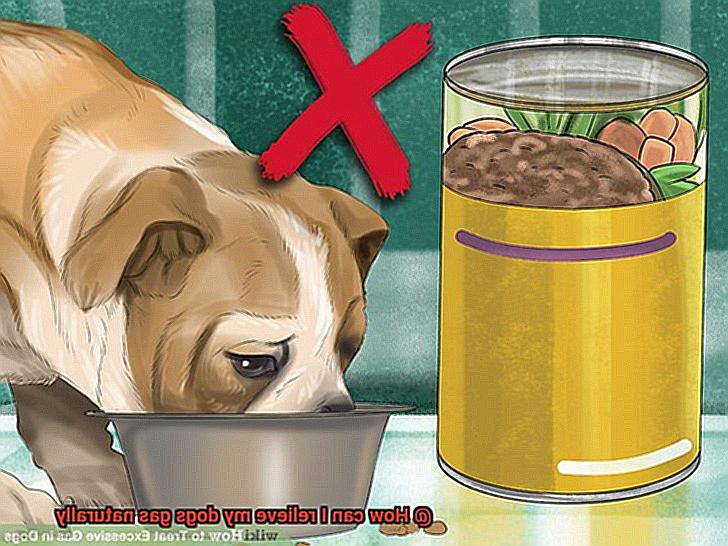
Boosting Exercise Levels for Better Digestion
Today, we’re going to dive into the world of exercise and how it can improve digestion in our beloved furry friends. So, grab a croissant and let’s get started.
The Power of Movement:
Just like us humans, French Bulldogs need regular exercise to keep their digestive system in tip-top shape. Exercise stimulates the muscles in their digestive tract, promoting better digestion and reducing gas. C’est magnifique.
Shedding Those Extra Pounds:
Maintaining a healthy weight is crucial for good digestion in French Bulldogs. Incorporating exercise into their routine can help them shed those excess pounds and improve digestion. Plus, who doesn’t love a trim and fit Frenchie? Ooh la la.
Low-Impact is Still Impactful:
Not all French Bulldogs can handle high-intensity exercises, especially those with certain health conditions or older pups. But fear not. Even low-impact activities like swimming or gentle walks can stimulate their digestive system and improve digestion. C’est fantastique.
Bye Bye Stress, Bonjour Digestion:
Stress can wreak havoc on a Frenchie’s digestion, leading to gas and discomfort. Thankfully, regular exercise releases endorphins that reduce stress levels and promote relaxation. Say adieu to stress and bonjour to better digestion. Sacre bleu.
Start Slow, Finish Strong:
To avoid overexertion or injuries, it’s essential to gradually increase your Frenchie’s exercise routine. Begin with short walks or play sessions and slowly increase the duration and intensity based on their fitness level and age. Rome wasn’t built in a day, after all.
Beat the Heat:
When exercising your Frenchie, be mindful of the weather. Hot temperatures can lead to heat exhaustion or dehydration, which can negatively impact digestion. Keep them hydrated, take breaks in shaded areas, and avoid the hottest parts of the day. Ooh la la, that’s some hot advice.
Tailored to Your Frenchie:
Remember, every Frenchie is unique, and their exercise needs may vary based on factors like breed, age, and health. It’s always best to consult with your veterinarian to determine the perfect exercise routine for your pup. Ils savent mieux.
Natural Remedies to Alleviate Gas in Dogs
Gas can be a stinky and uncomfortable issue for our beloved French Bulldogs. But fear not, there are natural remedies that can help alleviate gas and improve their digestive health without resorting to medication. Let’s explore some pawsome solutions together.
Dietary Changes:
Just like us, French Bulldogs benefit from a balanced diet to prevent gas. Certain foods, such as beans, peas, and dairy products, can be hard for them to digest and contribute to gas. To combat this, feed your Frenchie smaller, more frequent meals and avoid gas-inducing foods. Opt for high-quality, easily digestible dog food that is gentle on their tummy.
Probiotics:
Probiotics are like little superheroes for your Frenchie’s gut. These beneficial bacteria can regulate digestion and reduce gas. You can find probiotics in dog-friendly foods like yogurt or add them as a supplement to their diet. It’s like giving them a sidekick for their digestive system.
Digestive Enzymes:
Sometimes, French Bulldogs may lack sufficient digestive enzymes, which can lead to excess gas. Introducing digestive enzyme supplements into their diet can help break down food and improve digestion. It’s like giving them a little helper in their belly.
Herbal Remedies:
Nature has its own special remedies to soothe your Frenchie’s tummy troubles. Herbs like peppermint, ginger, and fennel have calming properties for the digestive system. You can give these herbs to your Frenchie in the form of herbal teas or add them to their food. It’s like a refreshing breath of fresh air for their digestion.
Exercise and Stress Reduction:
French Bulldogs are known for their adorable squishy faces, but did you know exercise is crucial for their digestion? Regular exercise stimulates their muscles, promotes better digestion, and reduces gas. It’s like a workout for their tummy. Additionally, stress can wreak havoc on their digestion, so providing a calm and stress-free environment is essential.
Promoting Healthy Eating Habits to Prevent Gas Buildup
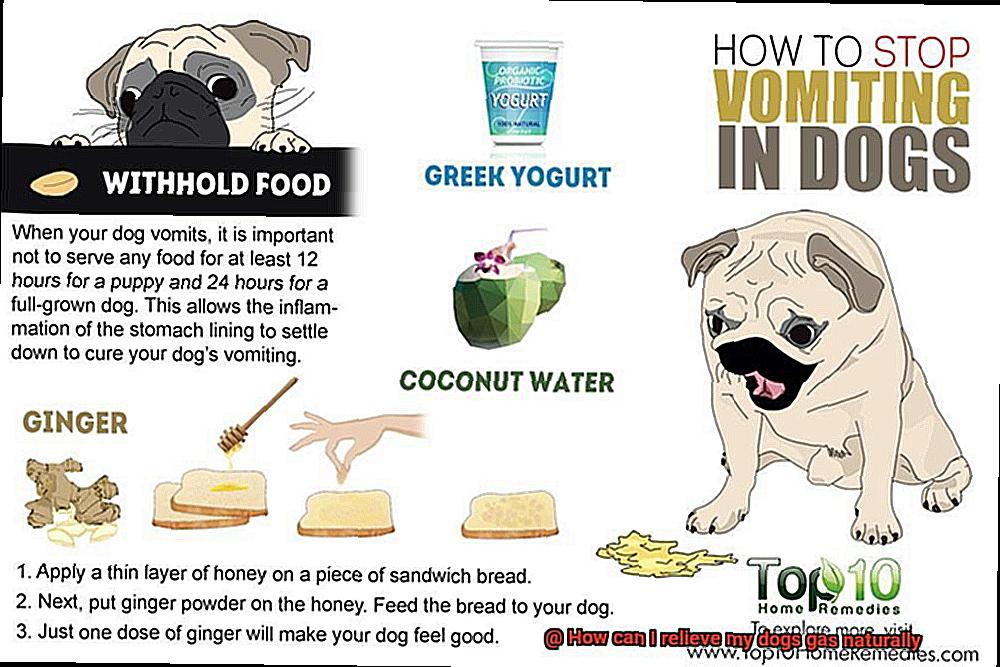
Gas buildup in French Bulldogs can be a smelly and uncomfortable problem. Thankfully, there are ways to prevent this issue by promoting healthy eating habits. In this blog post, we’ll explore some tips to help keep your Frenchie’s tummy happy and gas-free.
- Balanced Diet: Like humans, dogs also need a balanced diet to maintain good health. Ensure that your French Bulldog is getting a variety of nutrients from different food groups. High-quality protein, healthy fats, complex carbohydrates, vitamins, and minerals should all be included in their diet.
- Avoid Gas-Producing Foods: Some foods are known to produce more gas during digestion, causing discomfort for dogs. Avoid feeding your Frenchie foods such as beans, lentils, broccoli, cabbage, onions, and garlic. Opt for easily digestible alternatives instead.
- Smaller Meals: Instead of one large meal, try feeding your French Bulldog smaller meals throughout the day. This helps prevent overeating and reduces the chances of excessive gas buildup.
- Slow Eating: Encourage your Frenchie to eat slowly and chew their food properly. Rapid eating can lead to swallowing air, which increases gas production. Use puzzle feeders or place obstacles in their food bowl to slow them down.
- Suitable Feeding Environment: Ensure that your Frenchie has a calm and quiet space to eat without distractions or stressors. Avoid feeding them immediately before or after exercise, as this can disrupt digestion and increase the likelihood of gas buildup.
- Stay Hydrated: Adequate hydration is essential for proper digestion and preventing constipation, which can contribute to gas problems. Make sure your Frenchie has access to fresh water at all times.
The Benefits of Adding Fiber-Rich Foods to Your Dog’s Diet
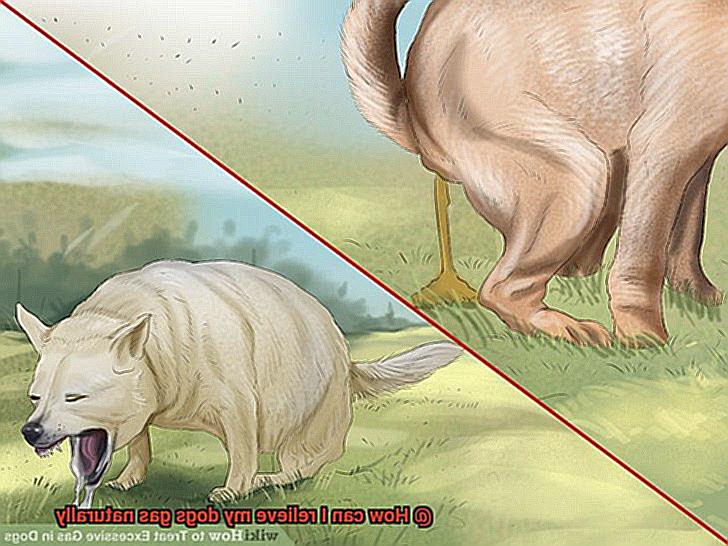
French Bulldogs are adorable and lovable companions, but their sensitive tummies can sometimes cause discomfort and unpleasant gas. One effective way to promote a healthy digestive system and reduce gas in your Frenchie is by adding fiber-rich foods to their diet. In this article, we will explore the advantages of incorporating fiber into your French Bulldog’s meals.
Improved Digestion:

- Fiber aids in digestion by regulating bowel movements and preventing constipation or diarrhea, both of which can contribute to gas.
- It adds bulk to the stool, making it easier for your Frenchie to pass waste and reducing the likelihood of uncomfortable gas buildup.
- Fiber acts as a prebiotic, nourishing the beneficial bacteria in your dog’s gut. These bacteria play a vital role in breaking down food and absorbing nutrients, which can help prevent gas issues.

Reduced Gas:
- By slowing down digestion, fiber minimizes the fermentation process that produces gas in the gut.
- It helps regulate the passage of food through the digestive system, allowing for better nutrient absorption and minimizing gas production.
Examples of Fiber-Rich Foods:
- Vegetables: Pumpkin, sweet potatoes, and green beans are excellent sources of fiber that can be easily incorporated into your Frenchie’s diet.
- Fruits: Apples and berries are also great options as they provide fiber while adding natural sweetness.
The Role of Probiotic Supplements in Relieving Dog Gas
Those adorable snorts and playful antics can brighten any day, but let’s be honest – their gas can clear a room faster than you can say “sacre bleu.” If you’re tired of living in a cloud of Frenchie farts, it’s time to explore the role of probiotic supplements in relieving dog gas.
What are Probiotics, Anyway?
Probiotics are like the superheroes of the digestive system. They’re live bacteria and yeasts that work tirelessly to restore the natural balance of gut bacteria, promoting healthy digestion.
When your Frenchie experiences excessive gas, it’s often a sign that their gut flora is out of whack. Factors like poor diet, stress, or antibiotics can throw off this delicate balance.
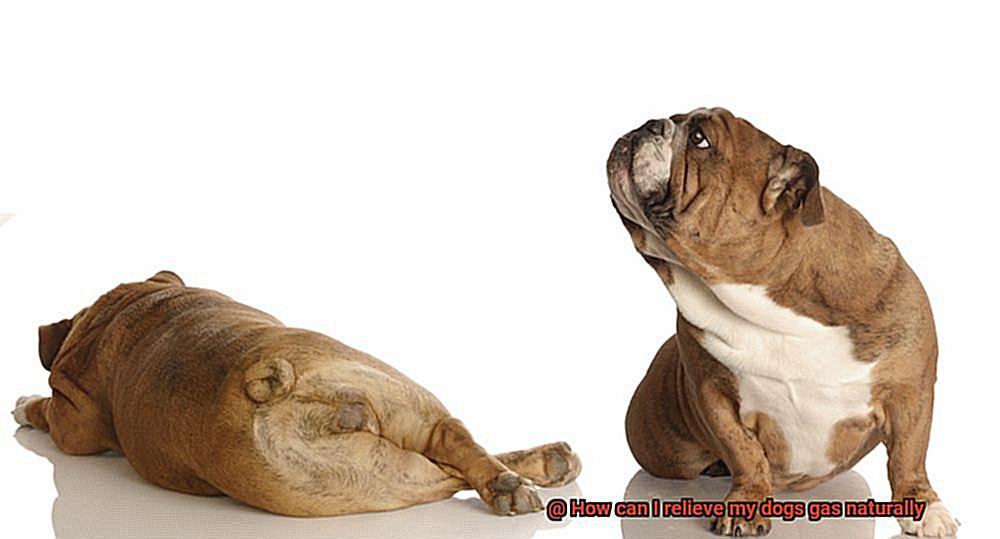
How Probiotics Save the Day
Enter probiotic supplements. These little wonders introduce beneficial bacteria into your Frenchie’s gut, helping them break down food more efficiently and reducing gas production. In fact, studies have shown that dogs who receive probiotic supplements have significantly less gas than those who don’t.
Choosing the Right Sidekick
Now, not all probiotic supplements are created equal. When searching for the perfect sidekick for your Frenchie’s digestive troubles, look for a high-quality product specifically formulated for dogs. Make sure it contains a variety of beneficial bacterial strains, such as lactobacillus and bifidobacterium.
But Wait, There’s More.
While probiotics are a fantastic solution for Frenchie gas, they’re not the only tool in your arsenal. Consider making dietary changes, like incorporating fiber-rich foods such as pumpkin and sweet potatoes into their meals. Feeding smaller meals more frequently can also help reduce gas buildup.
Before You Suit Up
Before you embark on your journey to a gas-free existence, consult with your veterinarian. They can provide guidance on the best probiotic supplement for your Frenchie’s specific needs and ensure it won’t interfere with any existing health conditions or medications.
Herbal Extracts That Can Help Ease Gas in Dogs
There are natural remedies that can help ease their discomfort. Herbal extracts have been used for centuries to promote digestion, reduce inflammation, and soothe the gastrointestinal tract.
In this blog post, we will explore the power of peppermint, ginger, fennel seed, chamomile, and slippery elm bark extracts in alleviating gas in our French Bulldogs.
Peppermint Extract:
Peppermint has long been recognized for its digestive benefits. The menthol it contains has a calming effect on the muscles of the gastrointestinal tract, reducing spasms and relieving gas.
A study published in the Journal of Gastroenterology found that peppermint oil significantly reduced symptoms of irritable bowel syndrome (IBS), including bloating and gas.
Ginger Extract:
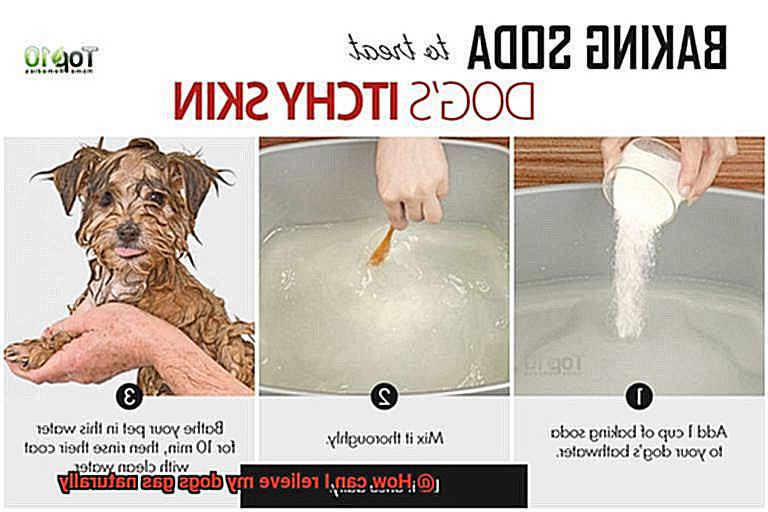
Ginger is a versatile herb known for its anti-inflammatory properties. It can soothe the digestive system and stimulate the production of digestive enzymes, aiding in food breakdown and reducing gas formation. A study published in the Journal of Ethnopharmacology demonstrated that ginger extract exhibited significant anti-inflammatory effects on the gastric mucosa.
Fennel Seed Extract:
Fennel seeds are packed with essential oils that possess carminative properties, meaning they can reduce gas and bloating. Fennel seed extract also relaxes the muscles of the gastrointestinal tract, promoting smoother digestion and less gas formation. A study published in Food Chemistry found that fennel seed extract exhibited potent antioxidant activity.
Chamomile Extract:
Chamomile is a gentle herb that can help soothe an irritated digestive system. Its anti-inflammatory properties make it effective in reducing gas-related discomfort. Chamomile can also alleviate anxiety and stress, which contribute to gastrointestinal issues. A study published in Planta Medica found that chamomile extract exhibited significant anti-inflammatory activity.
Slippery Elm Bark Extract:
Slippery elm bark extract is renowned for its soothing properties, reducing inflammation in the gastrointestinal tract. It can also absorb excess gas and toxins, promoting a healthier digestive system. A study published in the Journal of Alternative and Complementary Medicine found that slippery elm bark extract significantly reduced symptoms of irritable bowel syndrome, including bloating and gas.
kQmkjMiFSOk” >
Conclusion
In conclusion, if you’re looking for natural ways to relieve your dog’s gas, there are several options to consider.
First and foremost, adjusting their diet can make a significant difference. Opt for high-quality, easily digestible food that is free from artificial additives and fillers.
Additionally, incorporating probiotics into their meals can help promote a healthy gut and reduce gas production.
Another approach is to introduce digestive aids such as ginger or fennel into their diet, which can help soothe their stomach and alleviate gas discomfort.
Regular exercise is also crucial in preventing gas buildup in dogs. By keeping them active and ensuring they get enough physical activity, you can stimulate their digestive system and prevent bloating. Lastly, be mindful of any potential food allergies or sensitivities your dog may have, as these can contribute to excessive gas production.
Consulting with a veterinarian is always recommended to rule out any underlying health issues that may be causing the problem. With patience and the right approach, you can find natural solutions to relieve your dog’s gas and improve their overall well-being.
